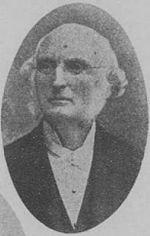Planning worship?
Check out our sister site, ZeteoSearch.org,
for 20+ additional resources related to your search.
- |
User Links
Search Results
Praise Waits for Thee, In Zion, O Lord
Appears in 33 hymnals First Line: Praise waits for Thee, in Zion, Lord Used With Tune: [Praise waits for Thee, in Zion, Lord]
Praise Waits for Thee, In Zion, O Lord
ST. STEPHEN (ABRIDGE)
Appears in 168 hymnals Composer and/or Arranger: Isaac Smith, c. 1735-1800 Tune Key: D Major Incipit: 15117 65433 23655 Used With Text: Praise Waits for Thee in Zion
ST. STEPHEN (ABRIDGE)
Praise Waits for Thee in Zion, Lord
Hymnal: Rejoice in the Lord #106 (1985) Meter: 8.6.8.6 Lyrics:
1 Praise waits for thee in Zion, Lord:
to thee vows paid shall be.
O thou that hearer art of prayer
all flesh shall come to thee.
2 To thee must all come penitent
who would in thee find peace:
guilt weighs us down, but thou from sin
dost contrite hearts release.
3 Bless'd are all those whom thou dost choose
and callest to thy side,
that they within thy courts may dwell,
and close to thee abide.
4 We surely shall be satisfied
with thy abundant grace,
and with the goodness of thy house,
e'en of thy holy place.
5 O God of our salvation sure,
thou answerest when we pray,
and dost thy perfect righteousness
in deeds of awe display.
6 In all the ends of earth, and far
in islands of the sea,
our fallen race has learned to place
its confidence in thee.
Scripture: Psalm 65 Languages: English Tune Title: BALFOUR
Praise Waits for Thee in Zion, Lord
Praise Waits for Thee, In Zion, O Lord
Hymnal: Songs of the Assembly #139 (1916) First Line: Praise waits for Thee, in Zion, Lord Languages: English Tune Title: [Praise waits for Thee, in Zion, Lord]
Praise Waits for Thee, In Zion, O Lord
Praise waits for Thee in Zion, Lord
Hymnal: The Book of Praise #25 (1972) Meter: 8.6.8.6 Topics: Calling; Opening and Closing of the Year Languages: English Tune Title: ABRIDGE
Praise waits for Thee in Zion, Lord
Nichol Grieve
1868 - 1954 Alterer of "Praise waits for Thee in Zion" in The Mennonite Hymnal
Nichol Grieve
Wm. Knyvett
1779 - 1856 Person Name: Knyvett Adapter of "CHANT" in The Presbyterian Book of Praise
Wm. Knyvett
Samuel R. Brown

1810 - 1880 Composer of "MONSON" in Book of Hymns and Tunes, comprising the psalms and hymns for the worship of God, approved by the general assembly of 1866, arranged with appropriate tunes... by authority of the assembly of 1873 Samuel Robbins Brown (16 June 1810-20 June 1880) was an American missionary to China and Japan with the Dutch Reformed Church.
Brown was born in Connecticut, graduated from Yale in 1832, studied theology in Columbia, South Carolina, and taught for four years (1834–38) in the New York Institution for the Deaf and Dumb.
In 1838 he went to Guangzhou and opened, for the Morrison Education Society, the first Protestant School in the Chinese Empire—a school in which were taught Yung Wing and other pupils who afterward came to the United States. The several annual reports on this school were published in The Chinese Repository for 1840 to 1846, to which he contributed some of his papers on Chinese subjects.
After nine years' service, his wife's health failing, Brown returned to the United States and became a pastor at Sand Beach Church and teacher of boys at Owasco Outlet, near Auburn (1851–59). He worked for the formation of a college for women, which was situated first in Auburn and then in Elmira, New York and now known as Elmira College. Brown was responsible for sponsoring Yung Wing (1828-1912); the first Chinese student to graduate from a U.S. university, graduating from Yale College in 1854.
When by the Townsend Harris treaty of 1858, Yokohama and Nagasaki in Japan were opened to trade and residence, Brown sailed for the former port and opened a school in which hundreds of young men, afterwards leaders in various walks of life, were educated. He translated the New Testament, and taught and preached for 20 years. He was one of the founders of the Asiatic Society of Japan and in many ways one of the most prominent makers of the new Japan. He returned to the United States in 1867 following a fire that destroyed his home, library, manuscripts, and notes.
Brown died during his sleep, while visiting an old friend in Stockbridge, Massachusetts, and is buried at Monson, Massachusetts, his boyhood home.
--en.wikipedia.org/wiki/
Samuel R. Brown


 My Starred Hymns
My Starred Hymns


